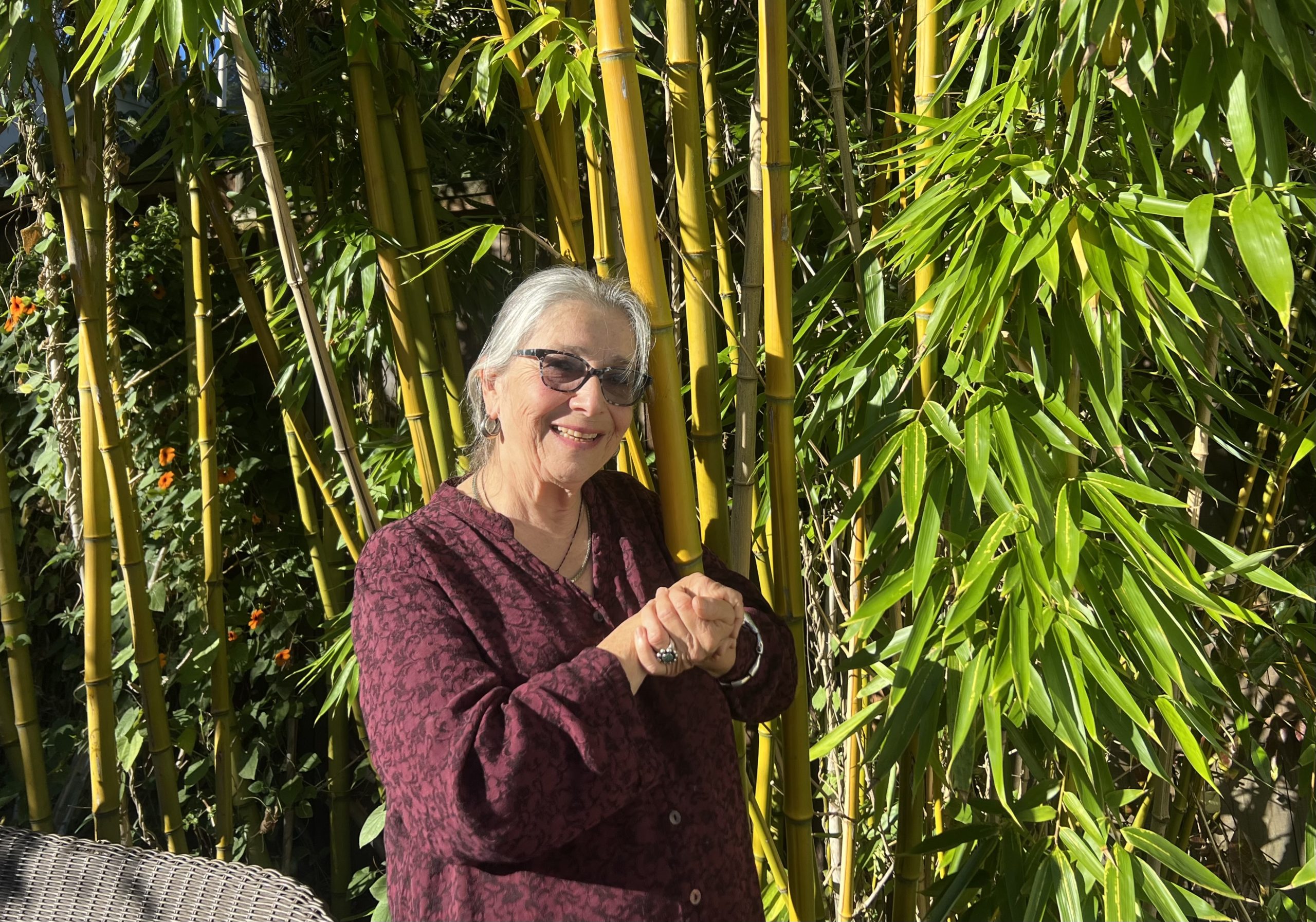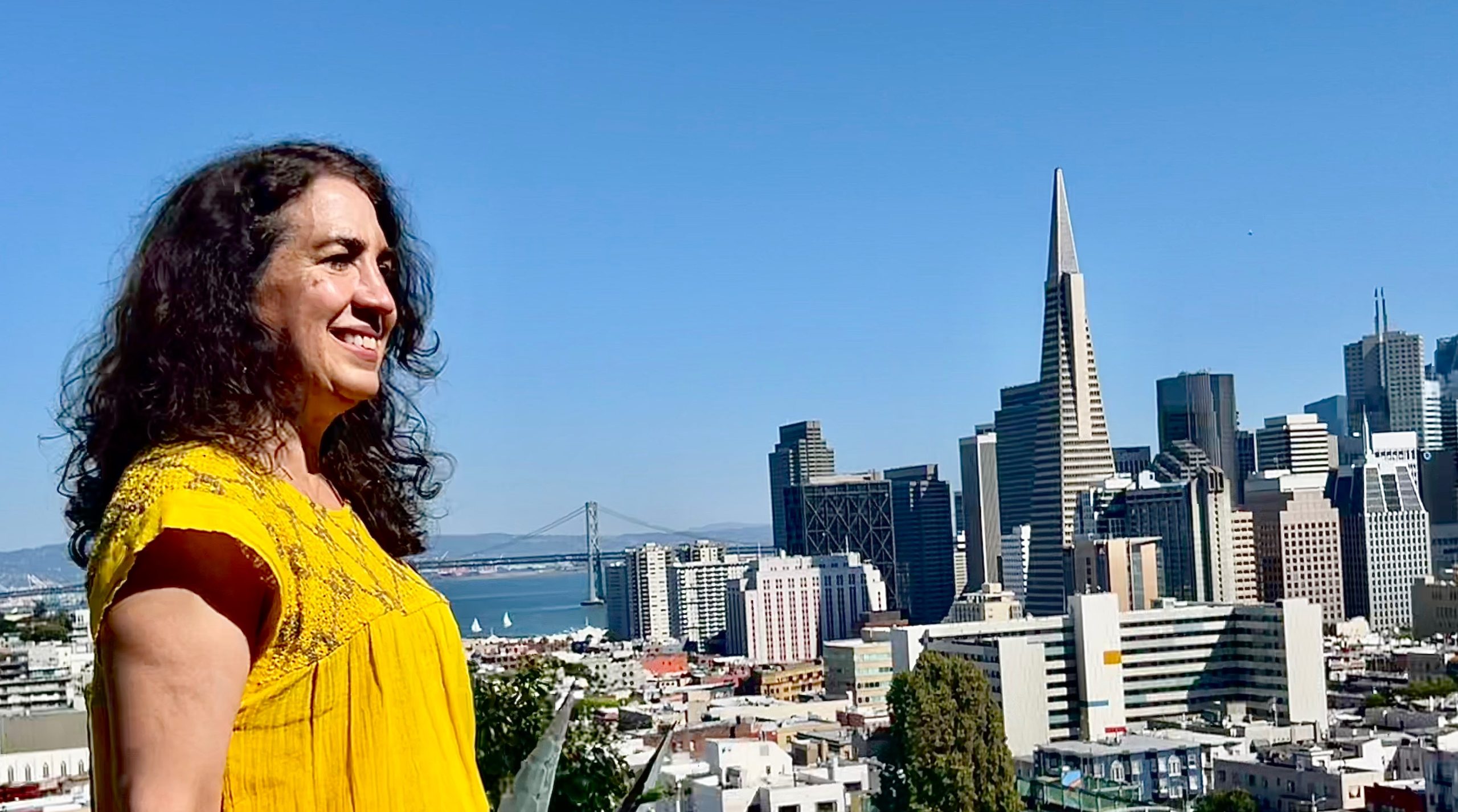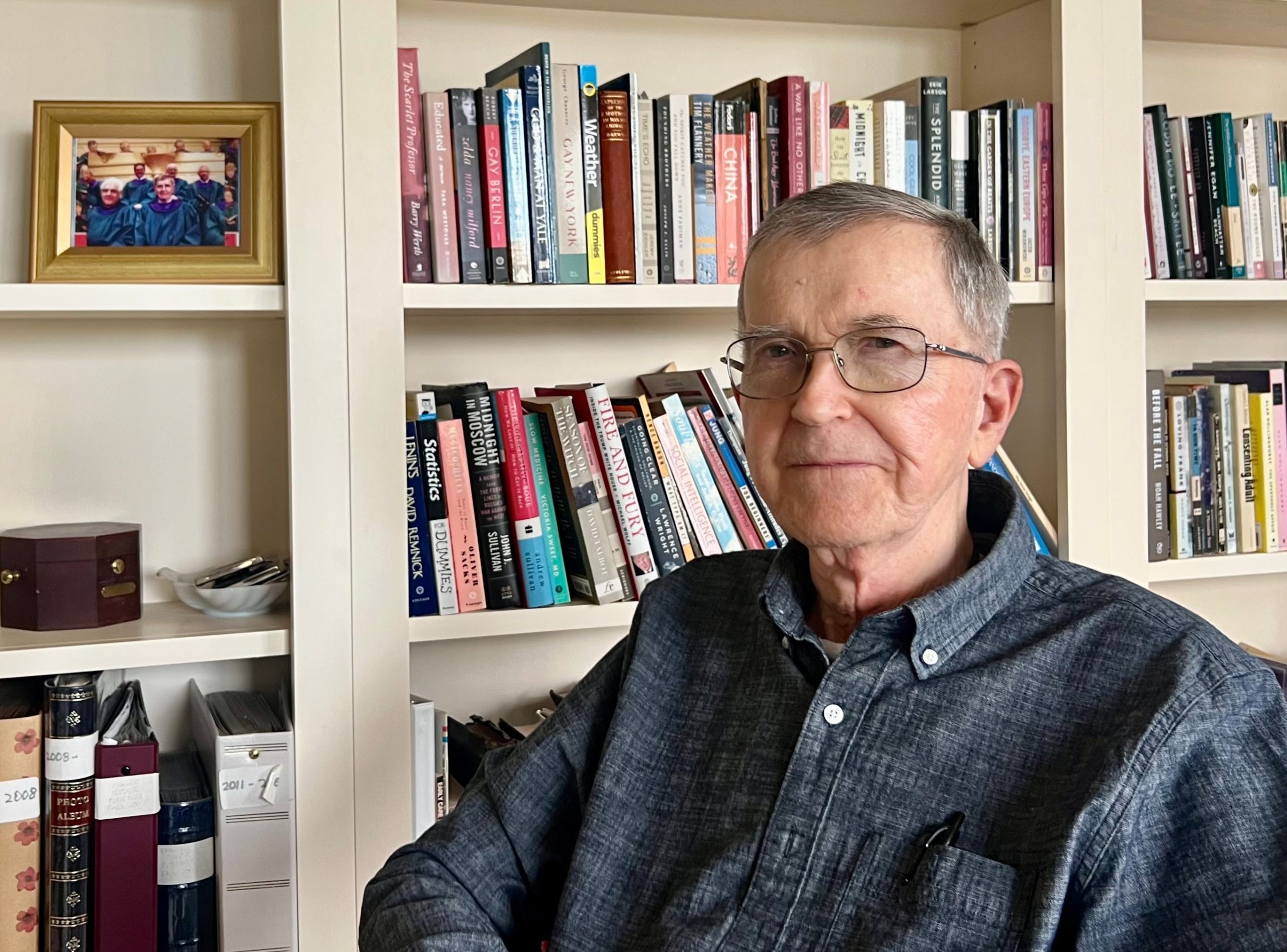Retired scientist, avid cyclist, and world traveler faces the challenge of Alzheimer’s
For many high school biology students, dissecting a frog is an unpleasant rite of passage. But for Shirley Lowe, the exploration of amphibian physiology “was fascinating, seeing all of its parts and how they were interconnected.”
Her skill and enthusiasm led to a student award and a decision to major in clinical laboratory science in college and later to a career as a clinical microbiologist. She excelled in her chosen field, rising to course director of the microbiology labs at the University of California, San Francisco, a position she held for 27 years.
In recognition of her talent for teaching and research, she earned the unusual distinction of being named a professor even though she never held a doctorate. Being a professor meant increased status, recognition, pay, and benefits, and the expectation of a comfortable retirement.
A great challenge
But at 75, Lowe faces the greatest challenge of her life: early-onset Alzheimer’s disease. She lives independently at the Sequoias on Cathedral Hill in San Francisco, a residence she chose because it also offers assisted living and memory care. “I am sad sometimes, but then I think I’m still me, the person I love,” she said.
Lowe shares her apartment with her dog, Skip, a Chihuahua-Jack Russell mix, taking him out three or four times a day, often off leash. “I do a lot of walking, and I still ride my bicycle around town, although not as fast, far, or up hills as I used to,” said Lowe, a blue-eyed woman whose wavy hair, once blond now varying shades of light gray, is held back by a tortoise shell headband.
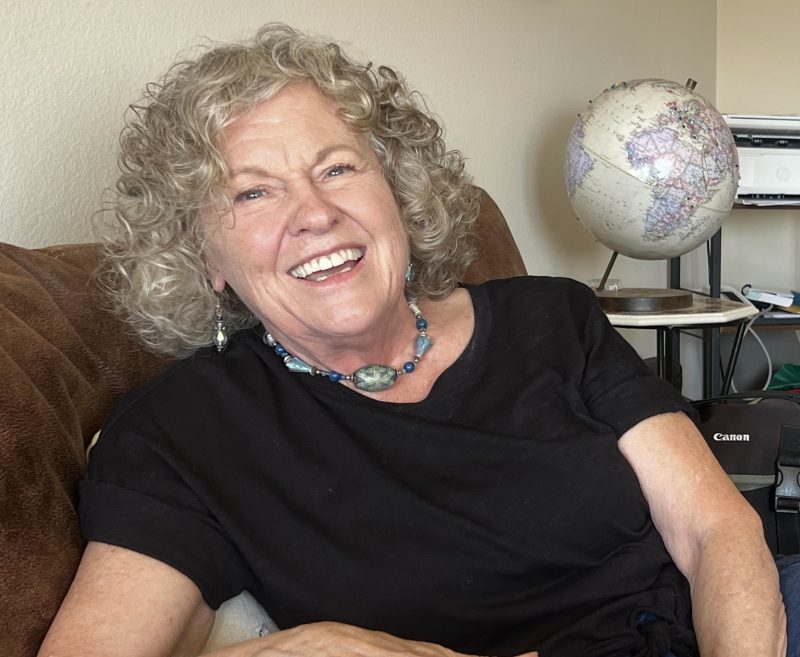
Recently, Lowe decided to give up her driver’s license. “I could get in the car and be perfectly fine, then 15 minutes later become confused,” she said. But she wasn’t ready to stop driving until her siblings and friends convinced her. Getting around San Francisco using buses, cabs, and her bike works well for someone who has been an avid cyclist for decades, she said, “but it does take longer.”
It also took her longer to make friends in her new residence, to the point that “I was even thinking of leaving because I wasn’t connecting with people,” she said. In an attempt to build community, she realized she had been overloading her schedule and then forgetting dates she had made with people.
Striving to be organized
Once she began to relax and use a calendar to keep track of appointments, things improved. She also gets support through psychotherapy, a 12-step program, and family and friends.
Meanwhile, she said, “I do everything I can to take care of myself.” And, as a scientist, she keeps on top of Alzheimer’s medical research, and is starting a new regimen at UCSF, a monoclonal antibody infusion she hopes will slow down the progression of the disease. “I will ask my doctor what ‘slowing down’ means,” she said. “Is it five years, 10 years?
Lowe was born in Germany, where her father, a master sergeant in the U.S. Army, was stationed. The family moved back to the States before her first birthday and lived on several bases around the country until her father retired and settled the family in the Detroit area. “I liked life on the bases, where there were lots of activities and kids my age,” said Lowe, who has four sisters and a brother.
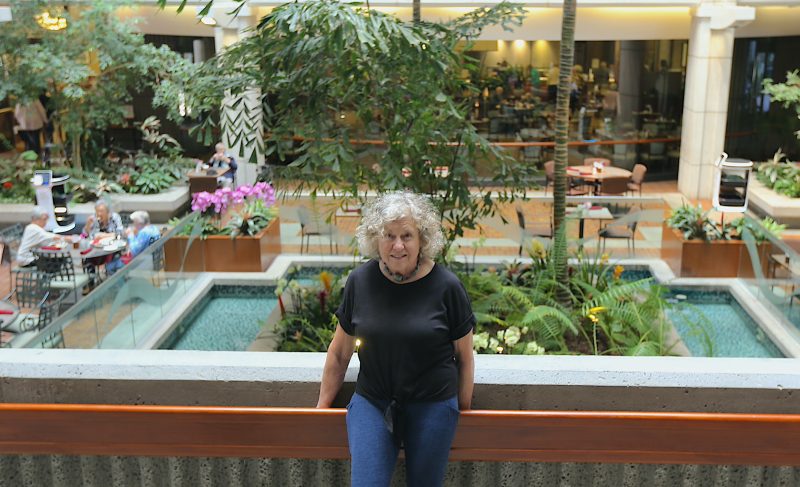
She was particularly proud of her mother, who, unlike many at the time, worked outside the home in various jobs. She was the manager of a cafeteria on one base and a delegate for the Democratic Party in their district.
Lowe found her niche in microbiology while a student at Western Michigan University, where she was selected to be a lab assistant to a professor doing research on antimicrobial resistance. “She gave me the spark that led to the rest of my career.”
She interned at Wayne County General Hospital in Westland, Michigan, before graduating in 1973. “In those days, I was a generalist, meaning I worked in chemistry, microbiology, blood banking, urine analysis, and hematology,” she said. Lowe continued at the hospital as a medical laboratory technologist.
A friend introduced her to Gary Lawson, whom she married in 1972. They moved to San Francisco, where she got a job as a clinical microbiologist at the University of California, San Francisco. “Microbiology is like a puzzle, which I love to solve. You get all these pieces of information to come up with the organism that is causing the disease.”
The couple divorced in 1983, shortly after their daughter was born. After returning from maternity leave in 1984, Lowe took a job as a lab assistant to a professor lecturing in the clinical labs at UCSF.
Professional recognition
While working at UCSF and thinking ahead to the possibility of being a lecturer, she earned a master’s degree in clinical laboratory sciences at San Francisco State University. That led to a big shift in her life. She was offered the job of course director, teaching medical, dental, and pharmacy students how to recognize microorganisms that cause disease and the drugs that were effective in curing them. “I loved the students because they kept me on my toes, spurring me on to find up-to-date research because of the intelligent questions they asked,” she said. “It kept me young.”
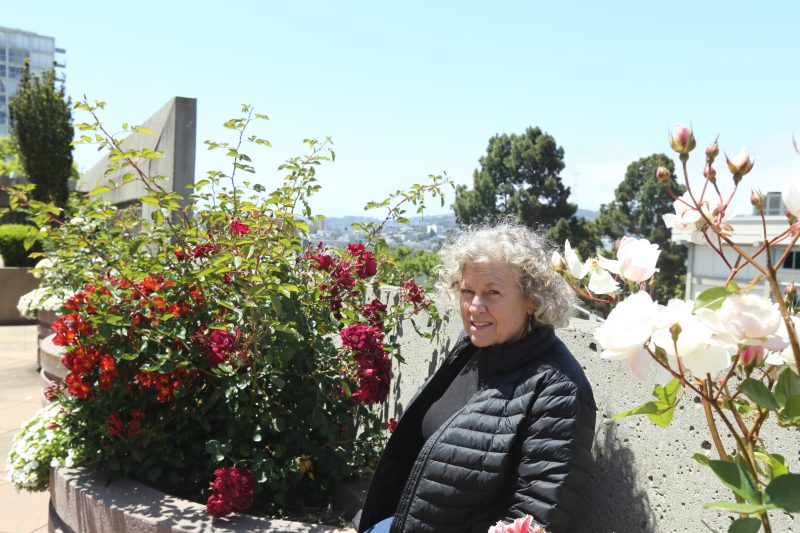
She also developed a yearly workshop to give formal clinical training to nursing students already working in the UCSF system.
Just as importantly, the new role allowed her time with her new child. As a microbiologist, she was working nights, weekends, and holidays. “Course director was a half-time assignment, with regular daytime hours, which was so much better because I had the baby to take care of,” she said.
She met her second husband in 1984 while taking swing lessons at a San Francisco dance ballroom. They married in 2010. He introduced her to bicycle riding, after which, she said, led to another big shift in her life.
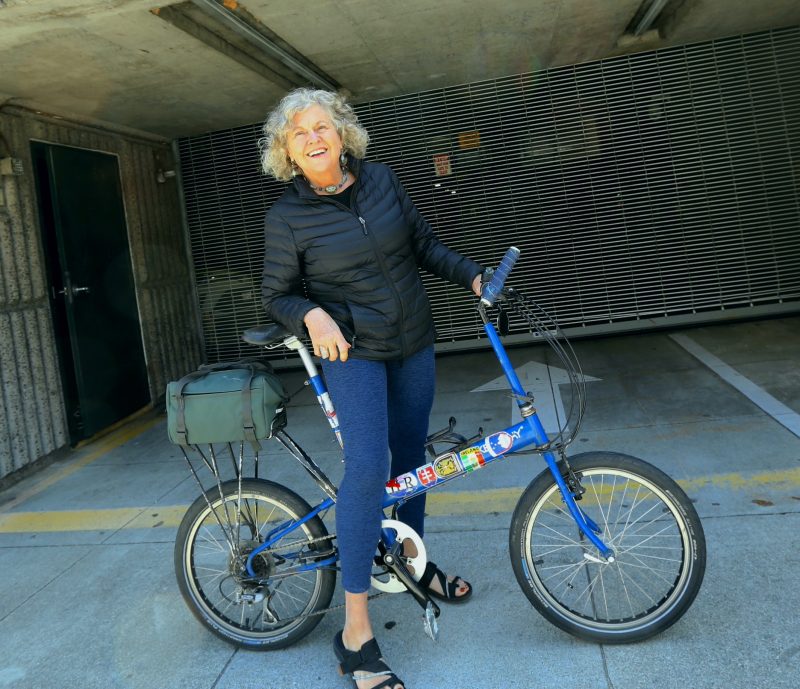
Then 34, she started riding all over San Francisco and Northern California. “I was fairly athletic because I had been a gym rat,” she said, “so it wasn’t hard for me to bicycle long distances.” They toured France by bicycle, followed by 20 more summer trips over four continents.
They divorced in 2018, but Lowe kept traveling by herself and in tour groups until her Alzheimer’s diagnosis two years ago. She then sold her home in the Parkside district and moved into an independent living facility in Monterey. “I expected to bike in that beautiful area for the rest of my days,” she said.
But, after her neurologist left Monterey and she couldn’t locate another she liked, she moved back to San Francisco to get care at UCSF. Her philosophy: “focus on the positive, do no harm, and be as kind as I can.” She enjoys the things she can do.
On a recent warm sunny day, Lowe explored Ocean Beach with her dog and had coffee at the Java Beach Cafe with an old friend she used to go boogie boarding with.


